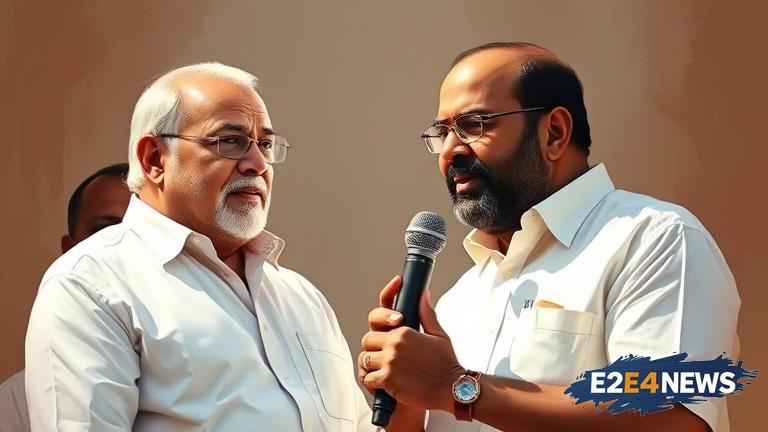The recent statement made by Union Home Minister Amit Shah, claiming that the BJP will join the government in Tamil Nadu, has sparked a significant response from the state’s Chief Minister, EPS. EPS has clarified that the BJP’s claim is unfounded and that the AIADMK will continue to maintain its independence in the state. This development has exposed the underlying tensions within the alliance between the AIADMK and the BJP. The AIADMK has been a long-standing ally of the BJP, but the relationship has been strained in recent times due to differences in opinion on various issues. The BJP’s attempt to join the government in Tamil Nadu has been seen as a move to expand its presence in the state and to gain a stronger foothold in the southern region. However, the AIADMK has been cautious in its approach, fearing that the BJP’s involvement could lead to a loss of its own identity and autonomy. The situation has been further complicated by the presence of other political parties in the state, including the DMK and the Congress, which have been critical of the AIADMK-BJP alliance. The DMK has accused the AIADMK of compromising its secular credentials by aligning with the BJP, while the Congress has questioned the AIADMK’s ability to maintain its independence in the face of the BJP’s growing influence. Despite these challenges, the AIADMK has maintained that it will continue to work with the BJP, but only on its own terms. The party has also made it clear that it will not compromise on its core values and principles, even if it means going against the BJP. The situation in Tamil Nadu is being closely watched by political observers, who see it as a significant development in the state’s politics. The outcome of this situation will have far-reaching implications for the future of the AIADMK-BJP alliance and the political landscape of Tamil Nadu. The AIADMK’s decision to respond to Amit Shah’s claim has been seen as a bold move, which could potentially alter the dynamics of the alliance. The party’s ability to maintain its independence and autonomy will be crucial in determining its future prospects. The BJP, on the other hand, will need to reassess its strategy in Tamil Nadu and consider the potential consequences of its actions. The situation is likely to remain fluid in the coming days, with both parties engaging in a delicate balancing act to maintain their respective interests. The people of Tamil Nadu will be watching the developments closely, as the outcome will have a significant impact on the state’s politics and governance. The AIADMK’s response to Amit Shah’s claim has also sparked a debate on the role of regional parties in Indian politics and their ability to maintain their independence in the face of national parties. The situation in Tamil Nadu is a reflection of the larger trends in Indian politics, where regional parties are increasingly asserting their influence and challenging the dominance of national parties.
